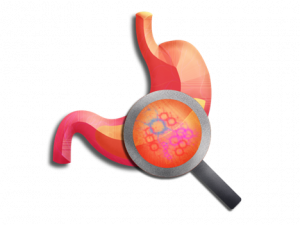A recent study in Nature Communications suggests that Parkinson’s disease may actually start in the gut. The microbiota-gut-brain axis has been suggested to play an important role in Parkinson’s disease (PD). Parkinson’s is a brain disorder that can cause uncontrollable movements such as shaking, limb stiffness, and difficulty with balance and coordination.
The study published in Nature Communications involved recruiting 490 people with Parkinson’s and 234 individuals who were neurologically healthy. Each provided a stool sample and information about themselves. When samples were analyzed, researchers found that bacteria, genes, and biological pathways differed by more than 30% in those with Parkinson’s compared to those who were neurologically healthy.
Of special interest was the fact that a specific bacterial species called Bifidobacterium dentium commonly known to cause infections such as brain abscesses, was seven times higher in folks with Parkinson’s. On the other hand, another bacteria called Roseburia intestinalis commonly found in healthy colons, was 7.5 times lower.
 I recommend ordering the Gut Zoomer Stool Test from Vibrant Wellness. https://www.vibrant-wellness.com/test/GutZoomer which includes both the Bifidobacterium dentium and Roseburia intestinalis, to find out if they are present in an individual of concern.
I recommend ordering the Gut Zoomer Stool Test from Vibrant Wellness. https://www.vibrant-wellness.com/test/GutZoomer which includes both the Bifidobacterium dentium and Roseburia intestinalis, to find out if they are present in an individual of concern.
It is important to note that constipation is a common complication of Parkinson’s disease. Many people who have Parkinson’s disease notice difficulties with constipation before they notice motor symptoms such as tremor or stiffness.
In addition to the mentioned bacteria, elevated levels of Escherichia coli, Klebsiella pneumonia, and quasipneumoniae have also been found in those with Parkinson’s.
Although the research is in the early stages of the relationship between Parkinson’s disease and gut dysfunction, it is my suggestion to consider ordering a stool test to determine if in fact the listed profile is apparent and take the appropriate action steps to improve the gut microbial environment.
You simply don’t know the possible positive impact this can make in moving one more step closer to improving Parkinson’s disease outcomes and in helping an individual towards enjoying “the best performance of their life!”
God bless,
DrB
References:
https://www.nature.com/articles/s41467-022-34667-x
https://www.nature.com/articles/s41467-023-38248-4



